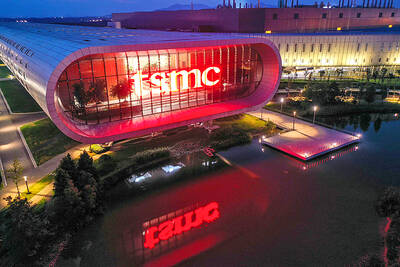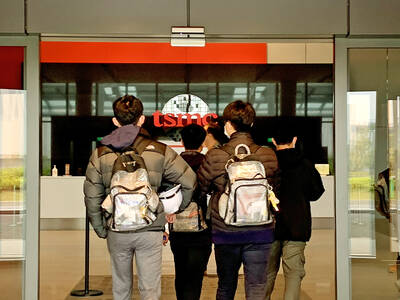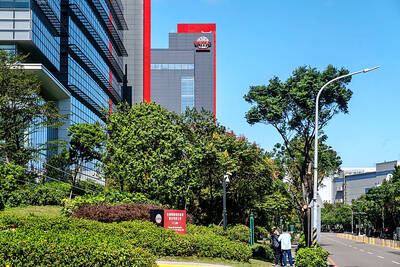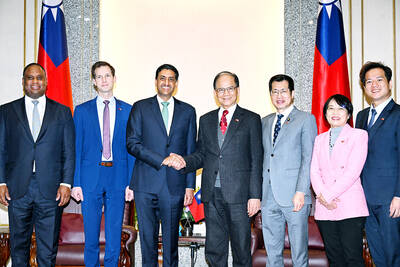Global index provider MSCI Inc has raised Taiwan’s weighting in one of its major indices, but left the country’s weighting in two others unchanged.
MSCI yesterday said in a statement that following a quarterly review, it increased Taiwan’s weighting in the MSCI All-Country Asia ex-Japan Index by 0.03 percentage points to 15.79 percent, while maintaining its weighting in the MSCI Emerging Markets Index and the MSCI All-Country World Index at 13.97 percent and 1.62 percent respectively.
As for the MSCI Emerging Markets Index, which is closely watched by foreign institutional investors, China was subject to the largest weighting upgrade of 0.09 percentage points, followed by Thailand’s 0.05 percentage point upgrade, the index provider said.
In the MSCI Taiwan Index, the number of constituents remained at 88, while the provider changed the weighting of 21 firms.
Walsin Lihwa Corp (華新麗華), a leading wire and cable maker, was subject to the largest upgrade of 0.01 percentage points to 0.43 percent, while China Development Financial Holding Co’s (中華開發金控) weighting was cut by 0.01 percentage points, the steepest reduction, to 0.69 percent.
No Taiwanese stocks were added to or removed from the MSCI Global Standard Indexes after the quarterly adjustments.
Before the MSCI statement, market watchers had high hopes that Global Unichip Corp (創意), an application-specific IC designer owned by contract chipmaker Taiwan Semiconductor Manufacturing Co (台積電), would be included in the MSCI Global Standard Indexes, pushing the stock higher in the past few trading sessions.
Unichip shares fell 1.09 percent after the announcement to close at NT$910.00 on the Taiwan Stock Exchange yesterday, while the TAIEX closed down 0.08 percent at 15,586.65.
MSCI added 10 Taiwanese stocks to the MSCI Global Small Cap Indexes and removed no stocks from them.
The 10 stocks added are yacht maker Alexander Marine Co (東哥), dumpling brand Bafang Yunji International Co (八方雲集), steel supplier Gloria Material Technology Corp (榮鋼), nylon air textured yarn provider Jinan Acetate Chemical Co (濟南大自然新材料) and machinery producer Kaori Heat Treatment Co (高力), IC patent portfolio owner M31 Technology Corp (円星科技), solar energy developer Shinfox Energy Co (森威能源), medical equipment supplier Synmosa Biopharma Corp (健喬信元醫藥生技), contact lens brand Visco Vision Inc (視陽) and wireless communications device maker Vivotek Inc (晶睿).
After the statement, M31 shares traded as high as NT$644.00, but fell 4.49 percent to close at NT$595.00 on profit-taking on the over-the-counter market, for which the index closed down 0.95 percent at 200.42.
The adjustments are to take effect after markets close on Feb. 24, MSCI said.
MSCI index reviews are conducted in February, May, August and November each year.

DOWNTURN FORECAST: Revenue grew to NT$200.05 billion last month, making it TSMC’s best January ever, but revenue could dip by up to 16 percent this quarter Taiwan Semiconductor Manufacturing Co (TSMC, 台積電) yesterday reported annual revenue growth of 16.2 percent to NT$200.05 billion (US$6.64 billion) last month, indicating that the world’s biggest contract chipmaker and a sole chip supplier for iPhones was unfazed by quarters-long supply chain inventor

LOCAL INNOVATION: Hon Hai was not among the top 10 local patent applicants, because the company assigns its research and development in the US and Japan Taiwan Semiconductor Manufacturing Co (TSMC, 台積電), the world’s largest contract chipmaker, took the top spot among patent applicants in the country for the seventh consecutive year last year, the Intellectual Property Office of the Ministry of Economic Affairs said on Friday.TSMC last year filed 1,5

QUICK REVERSAL: The move sent the chipmaker’s share price down 3.67 percent, after the billionaire investor’s company in October disclosed a major TSMC stake Warren Buffett slashed his holding of Taiwan Semiconductor Manufacturing Co (TSMC, 台積電) just months after disclosing a major stake, an unusually quick reversal by the billionaire investor that is chilling investor sentiment toward the chip giant.Buffett’s Berkshire Hathaway Inc cut its holding of TS

TSMC MEETING: The US lawmakers said the visit is not meant to provoke China, but to deepen cooperation in economic and political matters, as cross-party talks are planned The US and Taiwan should increase cooperation in manufacturing and innovation to benefit the world, a visiting US delegation said after meeting with Taiwan Semiconductor Manufacturing Co (TSMC, 台積電) founder Morris Chang (張忠謀) yesterday.US representatives Ro Khanna, Jake Auchincloss, Jonathan Jackson

NEW IDENTITY: Known for its software, India has expanded into hardware, with its semiconductor industry growing from US$38bn in 2023 to US$45bn to US$50bn India on Saturday inaugurated its first semiconductor assembly and test facility, a milestone in the government’s push to reduce dependence on foreign chipmakers and stake a claim in a sector dominated by China. Indian Prime Minister Narendra Modi opened US firm Micron Technology Inc’s semiconductor assembly, test and packaging unit in his home state of Gujarat, hailing the “dawn of a new era” for India’s technology ambitions. “When young Indians look back in the future, they will see this decade as the turning point in our tech future,” Modi told the event, which was broadcast on his YouTube channel. The plant would convert

‘SEISMIC SHIFT’: The researcher forecast there would be about 1.1 billion mobile shipments this year, down from 1.26 billion the prior year and erasing years of gains The global smartphone market is expected to contract 12.9 percent this year due to the unprecedented memorychip shortage, marking “a crisis like no other,” researcher International Data Corp (IDC) said. The new forecast, a dramatic revision down from earlier estimates, gives the latest accounting of the ongoing memory crunch that is affecting every corner of the electronics industry. The demand for advanced memory to power artificial intelligence (AI) tasks has drained global supply until well into next year and jeopardizes the business model of many smartphone makers. IDC forecast about 1.1 billion mobile shipments this year, down from 1.26 billion the prior

People stand in a Pokemon store in Tokyo on Thursday. One of the world highest-grossing franchises is celebrated its 30th anniversary yesterday.

Zimbabwe’s ban on raw lithium exports is forcing Chinese miners to rethink their strategy, speeding up plans to process the metal locally instead of shipping it to China’s vast rechargeable battery industry. The country is Africa’s largest lithium producer and has one of the world’s largest reserves, according to the US Geological Survey (USGS). Zimbabwe already banned the export of lithium ore in 2022 and last year announced it would halt exports of lithium concentrates from January next year. However, on Wednesday it imposed the ban with immediate effect, leaving unclear what the lithium mining sector would do in the